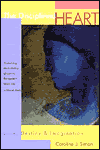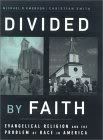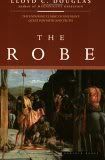 After a couple of delays, I think I'm finally ready to get going on The Disciplined Heart: Love Destiny, & Imagination by Caroline Simon. The chapters are fairly lengthy, so I'm going to leave lots out in the interest of space, but if anyone is reading along and thinks I've skipped something crucial, let me know.
After a couple of delays, I think I'm finally ready to get going on The Disciplined Heart: Love Destiny, & Imagination by Caroline Simon. The chapters are fairly lengthy, so I'm going to leave lots out in the interest of space, but if anyone is reading along and thinks I've skipped something crucial, let me know.
This first chapter is called "Love and Love's Counterfeits", and serves primarily as an introduction to the framework she will be using for dealing with the various forms of love throughout the rest of the book.
Of primary importance is the concept of destiny, which in her usage will refer not to fate, but to one's "true story". Destiny is "what God intends, but does not compel, me to be." (19) A couple of conditions apply to a Christian account of destiny. Our destinies only include things that are valuable and significant. Part of the value lies in the morality, so my destiny would preclude anything counter to God's moral will. Significance is fairly easy to understand... many choices I make are largely irrelevant to my destiny, such as a haircut, etc.
Open-endedness is a key factor of destiny as well. By this she means that there are not specific individual blueprints for our lives, but that there are any number of possibilities that would be in keeping with God's intentions for us. "Destinies can be failed or refused, but God confers on humans the dignity of being creators of their own destinies within the limits set by God's intentions." (20) So there isn't a single path that constitutes our destiny. This is hugely freeing - how often do we face choices (job, marriage, move, etc.) and get terrified that we'll make the wrong decision and permanently remove ourselves from God's plan for our lives? Talk about pressure! A pastor I once heard, I can't remember who, made the point emphatically that "with God, there is no plan B." Our choices matter, but I don't know that we have the power to do anything that will completely thwart God. Honestly, given my own checkered past, I take great comfort that God can use pretty much anything for good. Doesn't mean I couldn't have made better choices - I really wish I had - but it doesn't doom me to a second rate life. But you get the point.
So what does destiny have to do with love? Simon says (heh) that love is a form of grace that allows us to have insight into another person's destiny. And then it goes further. Not only does it allow us to perceive people in light of their destiny, but also to "act toward them in certain ways and experience certain feelings" (30) about them. This is important. To counter the prevalent romantic notions of love, Christians (and others) have become quite adamant that love is not an emotion, but an action or a commitment. Here she counters that, saying that while love cannot be reduced to an emotion, it certainly includes emotion. It is much deeper than a romantic feeling, however. It is the care and compassion that motivates our actions towards another. I definitely have a romantic streak, but am also quite practical in matters of the heart, and find it appealing to think in terms of 'deciding' and 'choosing' to love. So it was very helpful to think of the emotional side in a more nuanced way than the twitterpated feelings of love (infatuation?) that so often characterize our understanding.
Finally, a key element in her understanding of love is imagination. Imagination is the thing that allows us to have insight into the destiny of someone. This is contrasted with what she calls fiction-making, which is an illusion produced, often selfishly, by wishful thinking. Imagination is based firmly in the reality (the good, the bad, and the ugly) of the other but seeks to see beyond it and place them in the true narrative of God's purposes. It is defined by hope anchored in God, allowing us to see folks as God wants them to be, and then committing ourselves to being a part of their redemptive journey.
So that's a brief intro into her concepts of love, destiny and imagination. I'm looking forward to the rest of the book, especially as she will be taking a narrative approach and drawing a lot on novels and literature. As a bookworm, this pleases me.










3 comments:
Thanks Jasie for this excellent summary. I like Simon's stress on the importance of imagination for understanding love.
In your reading of the chapter what would be love's counterfeits?
I appreciate her stress on imagination (especially the way she distinguishes it from fiction making) as well.
As far as love's counterfeits, she seems to imply that anything that has the potential to turn the 'Thou' into an 'It' would be a poor substitute for actual love. Anything that fails to see the person not only in relation to yourself, but also to God, creation, the rest of the world, etc. I guess one way of saying it could be that a counterfeit of love would take you out of creative dialogue that is formative of both you and the other and into a monologue that restricts the truth outside of yourself from speaking back into the relationship. Hope that makes a tiny bit of sense!
That's a great way of putting it. Merci!
Post a Comment